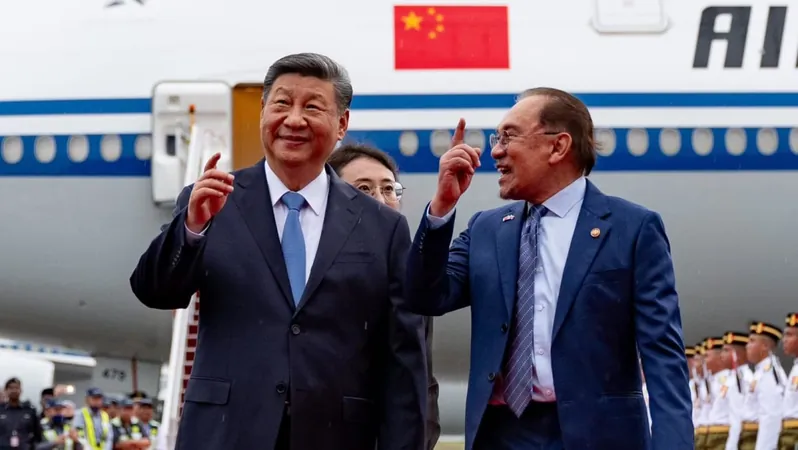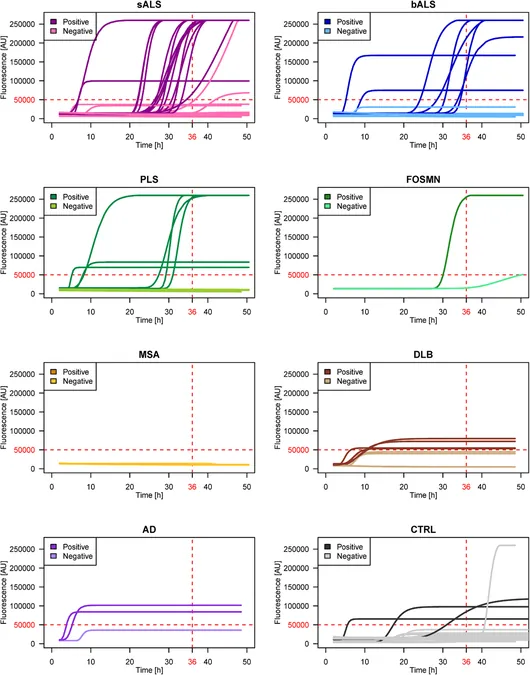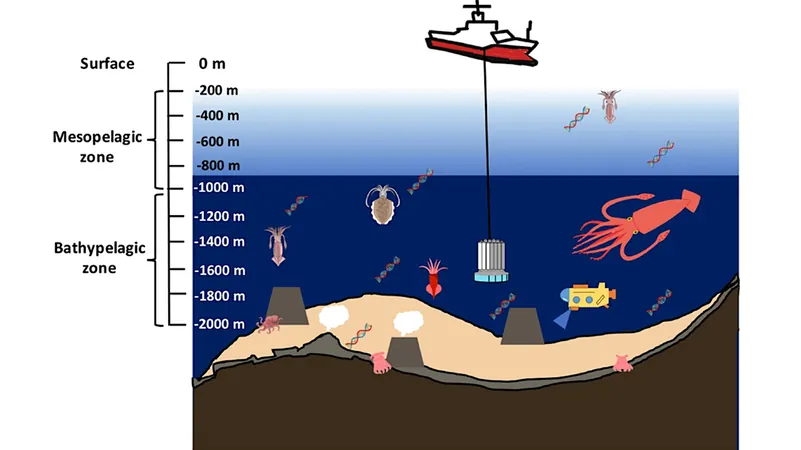
Xi Jinping's Strategic Visit to Malaysia Amid U.S.-China Trade Tensions
2025-04-15
Author: Yu
In a pivotal move amidst rising trade tensions with the United States, Chinese President Xi Jinping has launched a significant state visit to Malaysia on April 15. This visit is part of a broader tour of Southeast Asia, which previously included Vietnam and will also feature Cambodia, aimed at bolstering China's influence as a stable alternative to the punitive trade policies instituted by the Trump administration.
Upon his arrival in Kuala Lumpur, President Xi was warmly welcomed by Malaysian Prime Minister Anwar Ibrahim, showcasing the robust diplomatic relationship between the two nations. Xi expressed enthusiasm for deepening the "traditional friendship" between China and Malaysia, indicating a commitment to fostering closer ties.
Bilateral Cooperation on the Horizon
During his visit, Xi is scheduled to partake in a state banquet at the royal palace, followed by strategic discussions with Anwar in Putrajaya. They will oversee the signing of multiple bilateral agreements, signaling a significant step towards enhanced cooperation in various sectors including trade and economic collaboration.
In a compelling message published in Malaysia's The Star, Xi highlighted China's readiness to join forces with Malaysia to combat geopolitical tensions and unilateralism. His words emphasized the need for a UN-centered international system that promotes equitable global governance.
A 50-Year Friendship and Growing Trade
As China and Malaysia celebrated the 50th anniversary of their diplomatic relations last year, their trade ties have continued to strengthen. China remains Malaysia's largest trading partner, accounting for a substantial 16.8% of Malaysia's total global trade last year. Despite the growing economic partnership, issues such as territorial claims in the South China Sea remain sensitive.
Joint Opposition to Hegemony
Xi's visit comes on the heels of his trip to Vietnam, where both nations issued a joint statement pledging to oppose hegemony and unilateralism. Although the statement did not name the U.S. directly, it reflects a unified front against escalating trade conflicts and the impact of heavy tariffs imposed by Washington. Since the recent tariffs by the U.S., which have soared to as high as 145%, China has retaliated with its own duties of 125% on American goods, intensifying the trade war.
A New Chapter for China and Vietnam
During his Vietnam visit, Xi and Vietnamese leaders signed a remarkable 45 cooperation agreements across various domains, including supply chains and infrastructure development. Xi's assertion that both countries are at a "turning point in history" suggests a transformative phase in regional dynamics, underscoring the importance of strategic partnerships.





 Brasil (PT)
Brasil (PT)
 Canada (EN)
Canada (EN)
 Chile (ES)
Chile (ES)
 Česko (CS)
Česko (CS)
 대한민국 (KO)
대한민국 (KO)
 España (ES)
España (ES)
 France (FR)
France (FR)
 Hong Kong (EN)
Hong Kong (EN)
 Italia (IT)
Italia (IT)
 日本 (JA)
日本 (JA)
 Magyarország (HU)
Magyarország (HU)
 Norge (NO)
Norge (NO)
 Polska (PL)
Polska (PL)
 Schweiz (DE)
Schweiz (DE)
 Singapore (EN)
Singapore (EN)
 Sverige (SV)
Sverige (SV)
 Suomi (FI)
Suomi (FI)
 Türkiye (TR)
Türkiye (TR)
 الإمارات العربية المتحدة (AR)
الإمارات العربية المتحدة (AR)